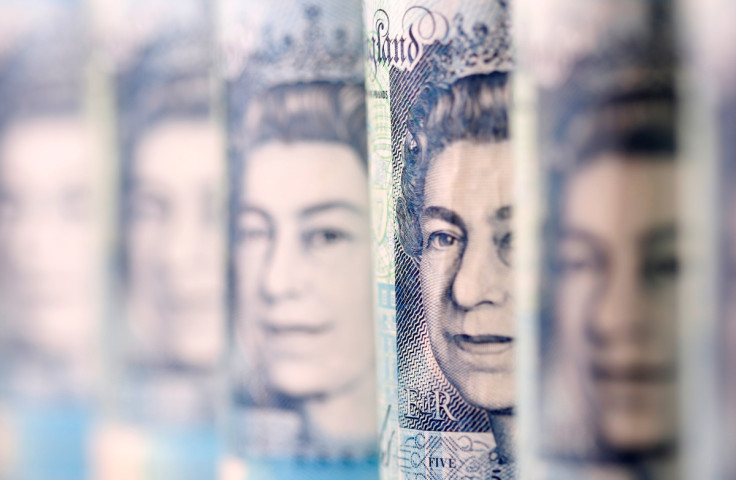Sterling Sinks To New Low As 'Mini Budget' Hits Investor Faith In UK Markets

The pound plunged to a record low against the dollar early on Monday and British bonds were slammed on concerns over the government's fiscal plan, unleashing calls for the Bank of England to deliver an immediate rate hike to restore investor confidence.
Finance minister Kwasi Kwarteng on Sunday dismissed the freefall in the pound that began on Friday after he unveiled his so-called "mini budget", saying his strategy was to focus on longer-term growth and not short-term market reaction.
On Friday, he announced that he would cut a raft of taxes, but he did not detail how the government would fund it.
British government bond yields ripped higher in response, rising by the most in a single day in decades on Friday, as investors ditched gilts, while London-listed blue chips hit their lowest since early March.
On Monday morning the pound fell by as much as 5% against the dollar at one point touching $1.0327, its weakest at least since the introduction of decimalisation in the early 1970s.
In light of the rout, strategists and economists said the Bank of England needs to do something to calm markets and restore credibility.
"Choice number one is that (Kwarteng) recalibrates his package, politically difficult but economically needed," Mohamed El-Erian, chief economic advisor at Allianz, told BBC Radio 4.
"Choice number two is he leaves it to the Bank of England and in that case the Bank of England would have to hike in an emergency meeting because they don't meet again until November.
But he added that the second option was not a good look.
"That in itself goes against him. Again the image of driving a car with the chancellor foot on the accelerator and the (BOE) governor foot on the brake. That is not a good way to drive the UK economy."
Markets currently show investors are placing an 88% chance of the BoE raising UK rates by a percentage point to 3.25% at its next meeting in November, according to Refinitiv data.
Sterling pared its overnight losses to trade down 0.7% on the day against the dollar at $1.0779, while against the euro it was down 0.7% at 89.88 pence, having hit a two-year high of 92.29.
The FTSE 100 was roughly flat on the day, while the domestically focussed FTSE 250 fell 1%.
'1980S ON STEROIDS'
Paul Dales, Capital Economics chief UK economist, said the central bank needed to take action.
"The further fall in the pound in early trading means that we've now reached the point where the Bank of England needs to step in in order to regain the initiative," he said.
Two-year gilt yields, which are the most sensitive to the outlook for interest rates and government borrowing, rose by as much as 54 basis points to a high of 4.53%. The yield has risen by around an entire percentage point in the last two trading days alone, reflecting the lack of confidence in the government's ability to fund its raft of tax cuts.
"The British have decided that going back to the 1980s on steroids is the best way to go, and clearly the market is just saying: 'That's not going to work,' on steroids," Michael Every, Rabobank strategist, said.
"The market is now treating the UK as if it's an emerging market. And they're not wrong in terms of the policy response and the naivety of thinking that boosting demand rather than supply is how you deal with a supply-side shock."
Further highlighting the extent to which investors have punished UK assets, the difference in the 10-year borrowing costs of the British and German governments exploded to its widest since 1992, when the UK crashed out of the European Exchange Rate Mechanism.
© Copyright Thomson Reuters 2024. All rights reserved.




















